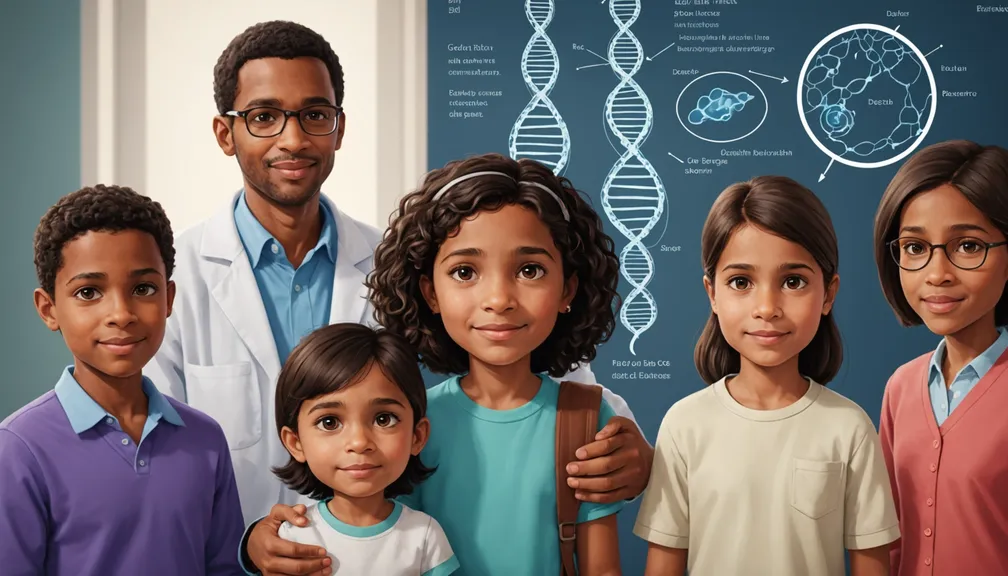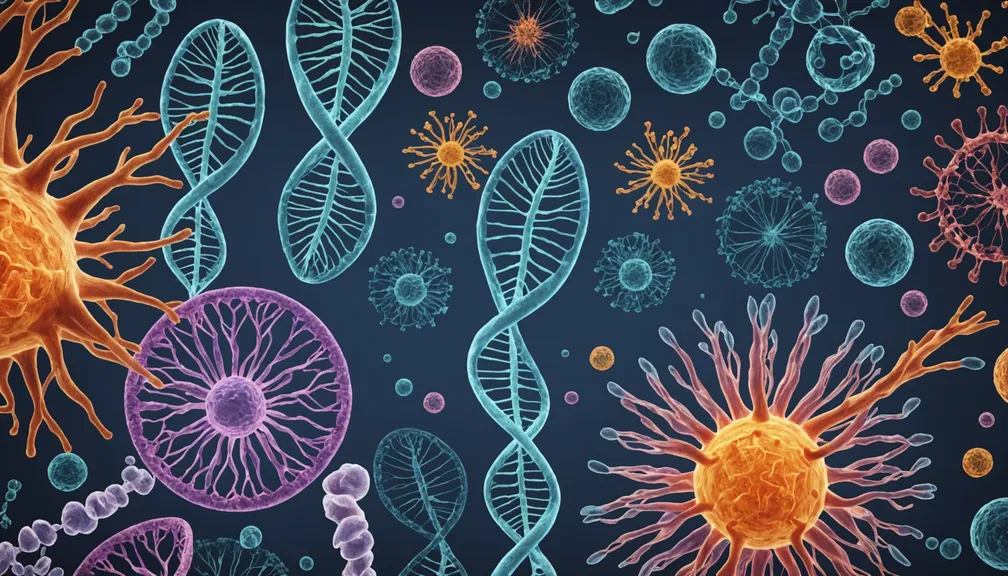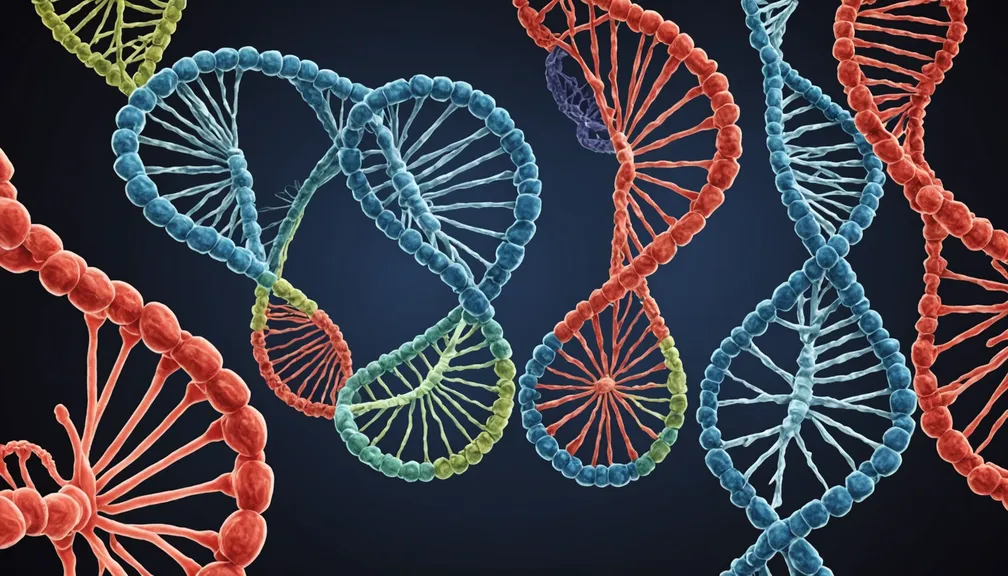Introduction to Genetic Rare Diseases: Understanding the Basics
Genetic rare diseases are a diverse group of disorders caused by changes or anomalies in an individual's DNA. These conditions can vary widely in their symptoms and severity, affecting any part of the body. Understanding genetic rare diseases is essential for early diagnosis, effective management, and providing support to those affected and their families.
What Are Genetic Rare Diseases?
Genetic rare diseases are conditions caused by changes in the DNA. These changes can range from alterations in a single gene to more complex modifications involving entire chromosomes. Although each rare disease affects a small number of people, there are thousands of different genetic rare diseases, collectively impacting millions worldwide.
- Single-Gene Disorders: Result from changes or mutations in one specific gene. Examples include Cystic Fibrosis and Sickle Cell Disease.
- Chromosomal Disorders: Involve changes in the structure or number of chromosomes. Down Syndrome is a well-known example.
- Mitochondrial Disorders: Caused by mutations in the mitochondrial DNA, affecting energy production in cells.
Causes and Types of Genetic Rare Diseases
Single-Gene Disorders
These disorders occur when a mutation affects a single gene. They can be inherited from parents or result from new mutations.
- Autosomal Dominant: Only one copy of the mutated gene is needed for the disorder to develop (e.g., Huntington's Disease).
- Autosomal Recessive: Two copies of the mutated gene are necessary for the disorder to manifest (e.g., Tay-Sachs Disease).
- X-Linked Disorders: Mutations occur on the X chromosome, often affecting males more severely (e.g., Hemophilia).
Chromosomal Disorders
These disorders involve abnormalities in chromosome structure or number. They can lead to developmental delays, physical abnormalities, and other health issues.
- Extra Chromosomes: Having an extra chromosome, such as in Down Syndrome (Trisomy 21).
- Missing Chromosomes: Missing a chromosome or part of it, which can cause various syndromes.
- Structural Changes: Rearrangements or deletions in chromosome segments.
Mitochondrial Disorders
These are caused by mutations in the mitochondrial DNA, affecting the cell's ability to produce energy. Symptoms often affect organs with high energy demands, like the brain and muscles.
- Leigh Syndrome: Affects the central nervous system.
- Mitochondrial Myopathy: Impacts muscle function.
How Genetic Rare Diseases Affect the Body
Genetic rare diseases can impact any body system, leading to a wide range of symptoms depending on the specific condition. Common areas affected include:
- Nervous System: Seizures, developmental delays, and intellectual disabilities.
- Musculoskeletal System: Bone deformities, muscle weakness, and joint problems.
- Cardiovascular System: Heart defects, arrhythmias, and blood vessel abnormalities.
- Metabolic Processes: Issues with how the body processes nutrients and energy.
- Immune System: Increased susceptibility to infections and autoimmune disorders.
Common Symptoms and Signs
While each genetic rare disease has its unique set of symptoms, some common signs include:
- Developmental Delays: Slow progress in reaching developmental milestones.
- Physical Abnormalities: Unusual facial features, limb abnormalities, or organ malformations.
- Intellectual Disabilities: Challenges with learning, memory, and problem-solving.
- Chronic Health Issues: Ongoing medical problems requiring long-term management.
- Growth Disorders: Abnormalities in growth patterns, such as undergrowth or overgrowth.
Diagnosing Genetic Rare Diseases
Early and accurate diagnosis is crucial for managing genetic rare diseases effectively. The diagnostic process may include:
- Medical History Evaluation: Reviewing family history and symptoms.
- Physical Examination: Identifying physical signs and abnormalities.
- Genetic Testing: Analyzing DNA to identify specific mutations or chromosomal changes.
- Molecular Genetic Tests: Look for specific gene mutations.
- Chromosomal Analysis: Detects larger genetic changes.
- Biochemical Tests: Assess the function of specific enzymes or metabolic pathways.
- Imaging Studies: MRI, CT scans, and X-rays to visualize structural abnormalities.
Treatment and Management Options
While many genetic rare diseases currently have no cure, various treatment and management strategies can help improve quality of life:
- Medications: Manage symptoms or slow disease progression.
- Physical Therapy: Enhance mobility and strength.
- Occupational Therapy: Assist with daily living activities.
- Speech Therapy: Improve communication skills.
- Surgical Interventions: Correct physical abnormalities or address complications.
- Gene Therapy: Emerging treatments aimed at correcting genetic defects.
- Supportive Care: Provide emotional and psychological support.
Living with a Genetic Rare Disease
Managing a genetic rare disease involves a combination of medical treatment, lifestyle adjustments, and support systems to enhance daily living:
- Regular Medical Check-Ups: Monitor health and adjust treatments as needed.
- Healthy Lifestyle Choices: Balanced diet, regular exercise, and adequate rest.
- Education and Awareness: Understanding the condition to better manage symptoms.
- Mental Health Support: Coping with emotional challenges through counseling or support groups.
- Adaptive Devices: Tools and technologies to aid mobility and daily activities.
Support for Patients and Families
Living with a genetic rare disease can be challenging for both patients and their loved ones. Accessing support resources is essential:
- Support Groups: Connect with others facing similar challenges.
- Counseling Services: Offer emotional and psychological support.
- Educational Resources: Provide information about the condition and management strategies.
- Financial Assistance: Help with medical expenses and other costs related to the disease.
- Care Coordination: Ensure seamless communication among healthcare providers.
Healthcare Professionals Who Can Help
A multidisciplinary team of healthcare professionals is often involved in the care of individuals with genetic rare diseases:
- Geneticists: Specialists in genetic disorders who provide diagnosis and genetic counseling.
- Primary Care Physicians: Coordinate overall healthcare and manage general health needs.
- Specialists: Depend on the affected body system, such as:
- Neurologists: For nervous system issues.
- Cardiologists: For heart-related problems.
- Orthopedists: For musculoskeletal concerns.
- Genetic Counselors: Assist families in understanding genetic aspects and make informed decisions.
- Therapists: Physical, occupational, and speech therapists to support functional abilities.
- Psychologists/Psychiatrists: Address mental health and emotional well-being.
- Social Workers: Help navigate resources, support services, and financial aid.
Understanding genetic rare diseases empowers patients and their families to seek appropriate care, advocate for their needs, and connect with supportive communities. Early diagnosis and a comprehensive care plan can significantly enhance the quality of life for those affected.






